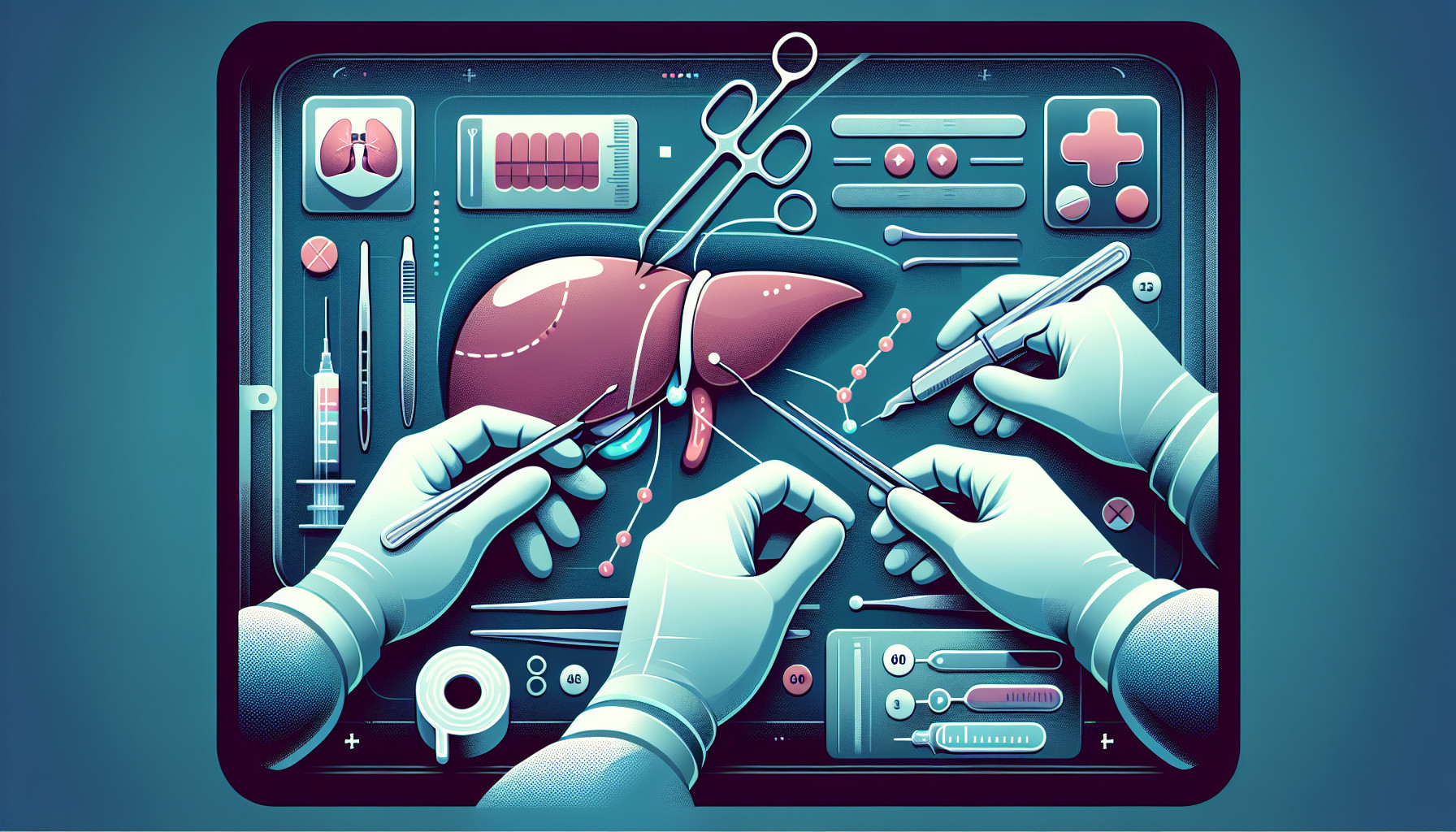Our Summary
This paper reviews the current and potential future methods for diagnosing liver fibrosis and cirrhosis, diseases that cause scarring and hardening of the liver. Traditionally, these conditions have been assessed using a liver biopsy, a procedure where a small piece of liver tissue is removed and examined. However, this approach has limitations and can be uncomfortable and risky for the patient. Over the last two decades, researchers have been developing less invasive methods to evaluate liver health. These include blood tests, mathematical formulas, and imaging techniques such as ultrasound, CT scans, and MRI. These methods are generally safer, more comfortable, cheaper, and can be repeated as often as needed. As a result, they are becoming more popular, and the number of liver biopsies is decreasing in some places, especially for routine checks of hepatitis B and C. However, there is ongoing debate about how accurate and valuable these less invasive methods are. The authors of the paper review these alternative methods and suggest that we may be nearing the end of the first phase of their development. Some early evidence indicates that these methods may be just as effective as a liver biopsy. They also suggest that new experimental markers and imaging techniques could greatly improve liver disease diagnosis in the future.
FAQs
- What is the traditional method for evaluating and following up on liver fibrosis and cirrhosis?
- What are the advantages of non-invasive diagnostic tools over liver biopsy?
- Are non-invasive diagnostic tools for liver fibrosis and cirrhosis as accurate as liver biopsies?
Doctor’s Tip
A doctor may advise a patient undergoing a liver biopsy to avoid taking blood thinners, such as aspirin or ibuprofen, in the days leading up to the procedure to minimize the risk of bleeding. They may also recommend fasting for a certain period of time before the biopsy. Additionally, the doctor may inform the patient about the potential risks and complications associated with the procedure, such as infection or bleeding, and discuss post-biopsy care instructions, such as avoiding heavy lifting or strenuous activity for a period of time.
Suitable For
Patients who are typically recommended liver biopsy include those with suspected liver disease, abnormal liver function tests, unexplained liver enlargement, suspected liver tumors, monitoring of disease progression, evaluation of treatment effectiveness, and staging of liver fibrosis and cirrhosis. Additionally, liver biopsy may be recommended for patients with known or suspected liver diseases such as hepatitis B or C, autoimmune hepatitis, fatty liver disease, and alcoholic liver disease. Patients with risk factors for liver disease such as alcohol abuse, obesity, diabetes, and family history of liver disease may also be recommended for liver biopsy.
Timeline
Before liver biopsy:
- Patient may undergo blood tests and imaging studies to assess liver function and anatomy
- Patient may be advised to stop taking certain medications that could affect the procedure
- Patient may receive instructions on fasting before the procedure
- Patient may meet with the healthcare team to discuss the procedure and potential risks
After liver biopsy:
- Patient may experience some pain or discomfort at the biopsy site
- Patient may be monitored for a few hours after the procedure to check for any complications
- Patient may be advised to avoid strenuous activities for a few days
- Patient may receive instructions on caring for the biopsy site and watching for signs of infection
- Patient may need to follow up with the healthcare team for results and further management based on the findings.
What to Ask Your Doctor
- What is the reason for the liver biopsy and what information are you hoping to gather from it?
- What are the risks and potential complications associated with a liver biopsy?
- How will the procedure be performed and what can I expect during and after the biopsy?
- How long will it take to get the results of the biopsy?
- Are there any alternative tests or imaging methods that could provide similar information without the need for a biopsy?
- How will the results of the biopsy impact my treatment plan or prognosis?
- Are there any specific instructions or precautions I should follow before or after the biopsy?
- Will I need to be sedated for the procedure?
- Will I need someone to accompany me or drive me home after the biopsy?
- Are there any specific questions I should ask or information I should provide to ensure the biopsy is successful and accurate?
Reference
Authors: Lurie Y, Webb M, Cytter-Kuint R, Shteingart S, Lederkremer GZ. Journal: World J Gastroenterol. 2015 Nov 7;21(41):11567-83. doi: 10.3748/wjg.v21.i41.11567. PMID: 26556987
